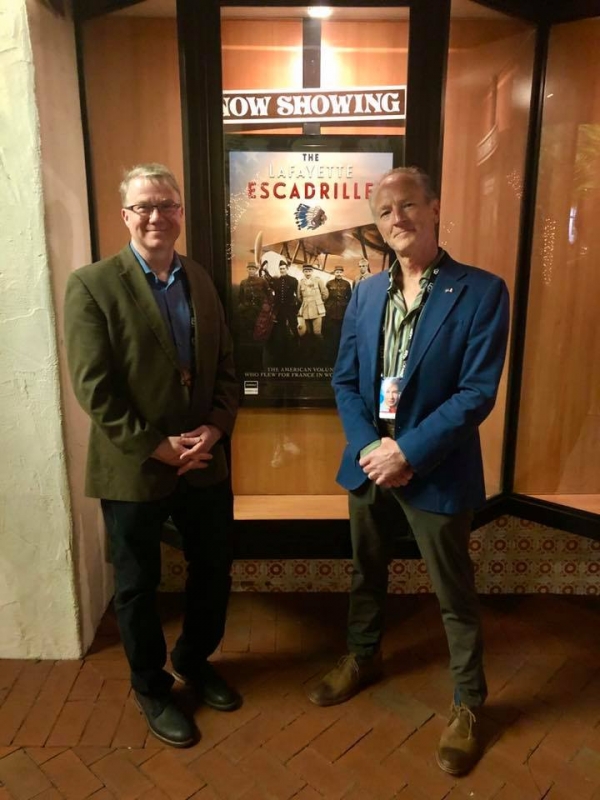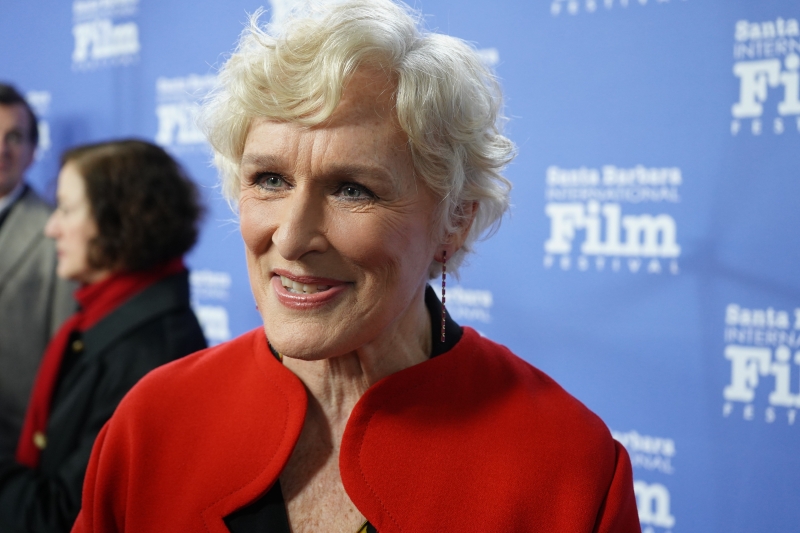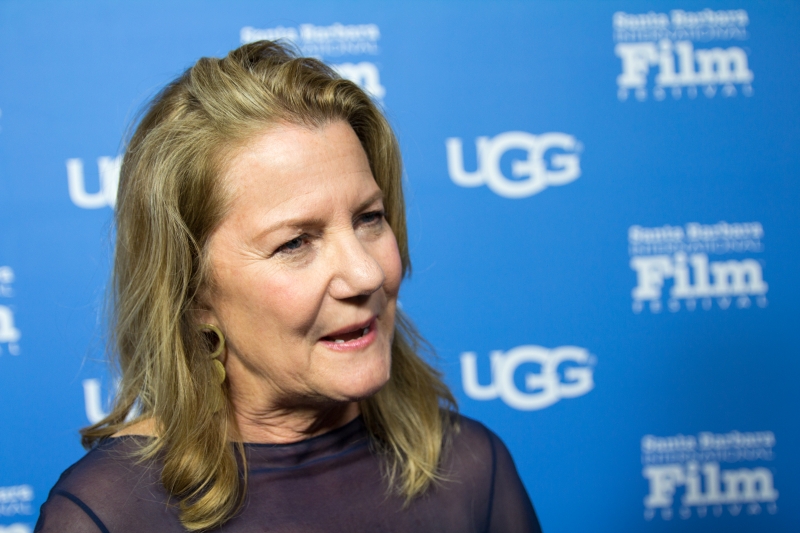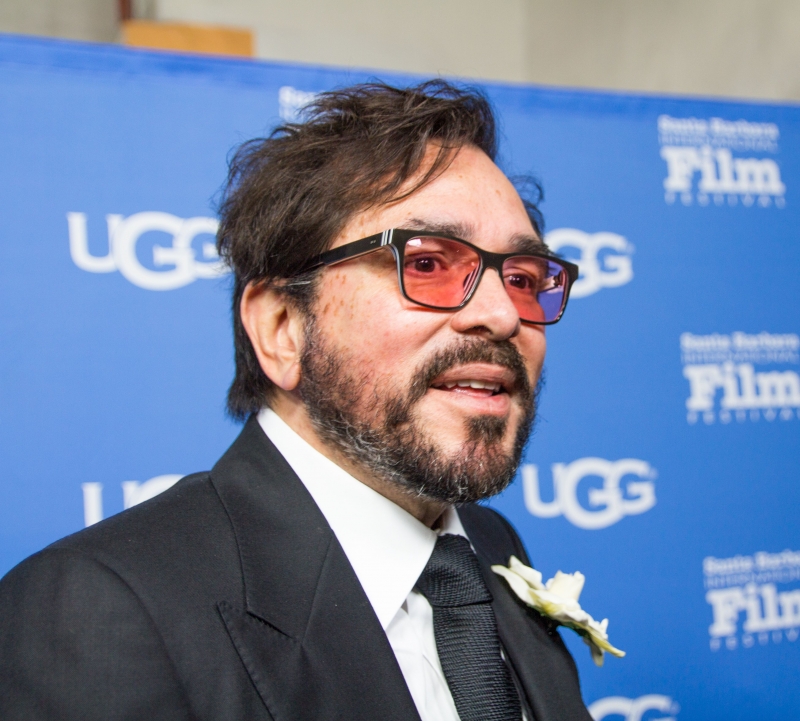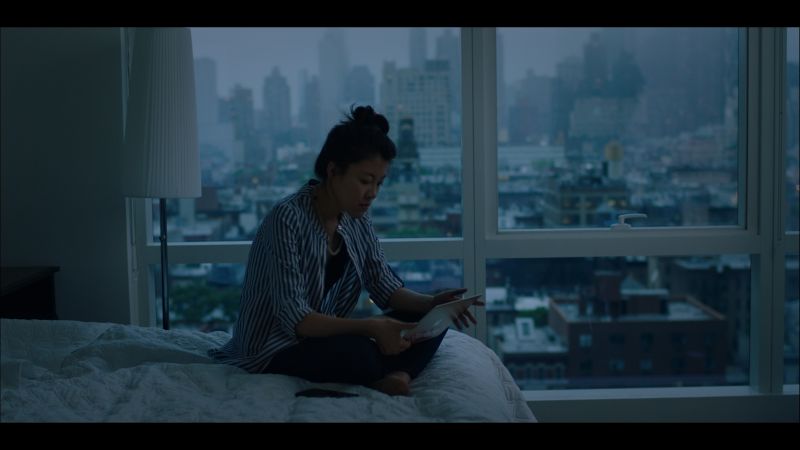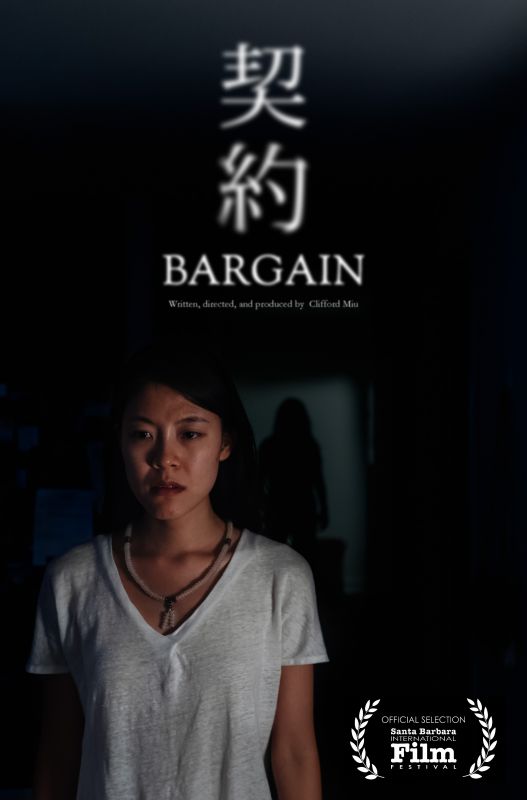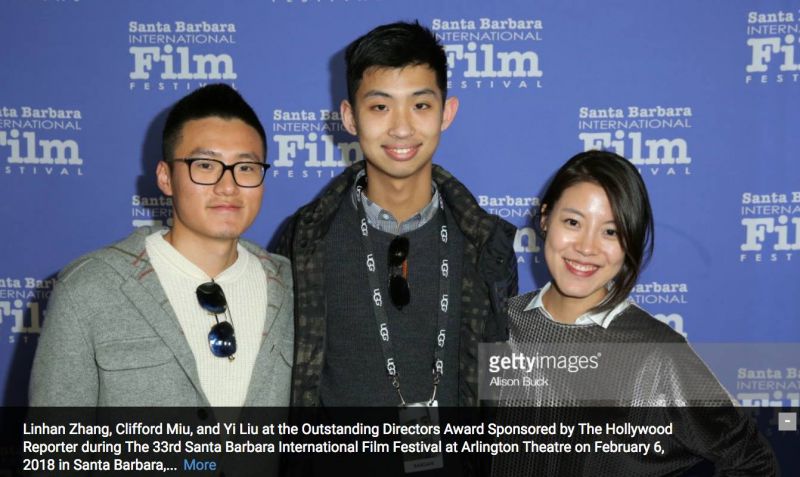|
|
||
|
Pro Tools
FILMFESTIVALS | 24/7 world wide coverageWelcome ! Enjoy the best of both worlds: Film & Festival News, exploring the best of the film festivals community. Launched in 1995, relentlessly connecting films to festivals, documenting and promoting festivals worldwide. We are currently working actively to upgrade this platform, sorry for the inconvenience. For collaboration, editorial contributions, or publicity, please send us an email here. User login |
Santa Barbara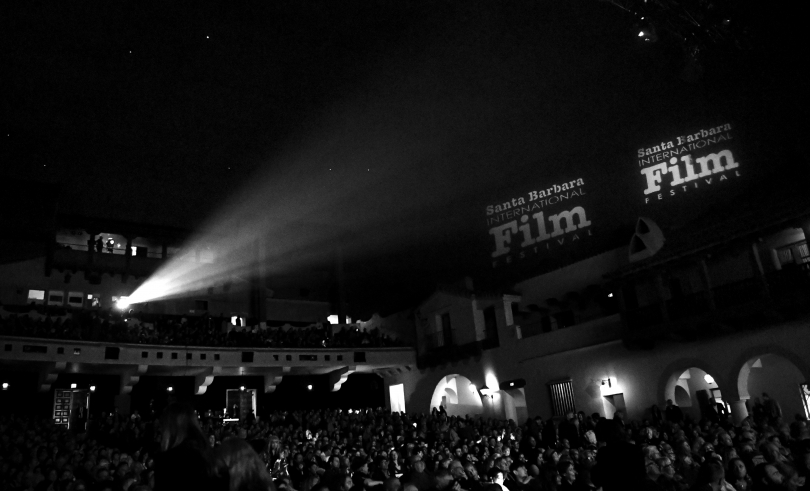
SBIFF is a 501(c)(3) non-profit arts and education organization dedicated to making a positive impact utilizing the power of film. SBIFF is a year-round organization that is best known for its main film festival that takes place each year in February. Over the past 30 years the Santa Barbara International Film Festival has become one of the leading film festivals in the United States – attracting 90,000 attendees and offering 11days of 200+ films, tributes and symposiums. We bring the best of independent and international cinema to Santa Barbara, and we continue to expand our year-round operation to include a wide range of educational programming, fulfilling our mission to engage, enrich and inspire our community through film.
In June 2016, SBIFF entered a new era with the acquisition of the historic and beloved Riviera Theatre. The theatre is SBIFF’s new home and is the catalyst for our program expansion. This marks the first time that Santa Barbara has had a 24/7 community center focused on the art of film and is an incredible opportunity to expand our mission of educational outreach. Particularly important to SBIFF is making available high quality learning opportunities for underserved and vulnerable populations. Our programs and reach are more robust than ever before.  Interview with the filmmakers of THE LAFAYETTE ESCADRILLE at Santa Barbara International Film Festival 2020
Darroch Greer and Paul Glenshaw (THE LAFAYETTE ESCADRILLE documentary) selected at Santa Barbara International Film Festival 2020 Interview with Emmanuel Iitier The 35th Santa Barbara International Film Festival (www.SBIFF.org) just completed another splendid year with an amazing programming of mesmerizing features and inspiring documentaries. One of these documentaries that caught my interest was the American project written, produced and directed by two maverick men: Darroch Greer and Paul Glenshaw. Their film, ‘The Lafayette Escadrille’ is the perfect example of the unifying spirit existing between the U.S.A and France! Let’s remember that the army of Lafayette came to rescue the Americans from the armies of the Queen of England and during the 2 World Wars. And the Americans came to the rescue of the French to save them from the chaos that Europe was under. We caught up with Darroch and Paul on the eve of their premiere screening at SBIFF (which was a huge success!):
Q: Why this subject and how did it come together?
Darroch: I’m an historian and a documentary filmmaker and in 2008 a book came out: “The Millionaires Unit”. It was about a group of Yale students who taught themselves how to fly in preparation for World War I. They thought they should participate in this war. And as soon as war was declared, they were the first ones to fight for the United States. A friend from college called me and told me his grand father was one of these soldiers and he proposed me to make a documentary. We then formed a non profit organization and raised a million dollars to make the documentary. It took us 7 years! And this was tricky to find these old planes, as there are only 3 left, one in the USA, one in England and one owned by Peter Jackson in New Zealand! And this was an amazing experience to go film there and to work with his team. We ended up making a two hour documentary with completion funding by FedEx. So, after 7 years, I had a gigantic WW I library of footages and images. I had learned so much about WW I that in some conversations, I came up with the idea to do a film about “The Lafayette Escadrille”. I was surprised nobody had thought about doing a documentary on this regiment of flying fighters. There were shorts, but no features. After meeting my current partner, Paul Glenshaw, at an air show, we decided to join forces. I was there showing 30min of a montage about the “Millionaires Unit” and Paul was showing a short. Paul works for the aviation business and write for air and space magazines. It happens he had written an article about ‘The Lafayette Escadrille”; therefore our collaboration was a natural step towards the creation of what is now our documentary, playing at the Santa Barbara Film Festival. The foundation who had given me most of the money for the ‘Millionaire’s Unit’ gave 250K for this documentary. And that got us to film in France during the centennial celebration of The Lafayette Escadrille. It took place between Paris and Versailles. We filmed a lot and we even went to Verdun for research. And with all of this footage and interviews we started putting the film together.
Q: What was the attraction to the subject matter and what impact would you like for the film to create?
Darroch: All I wanted to do was go back to France! And film in France!! I love France and I love spending times there. On top of this I believe that WW I is second most important to Americans after The Civil War. This is the event that defines the next 100 years of History. WW I was truly shaping Europe, the Middle East and all these issues we are still dealing with. WW I was also the war that allowed America to step out on the world stage and truly lead the XXth century. We call it the “founding catastrophe” of the Modern Era. Even so WW II was five times as big is was just the re-fighting of WW I. Also for me, it’s important to remind Americans about the depth and longevity of our relationship with France. The reason they were called “The Lafayette Escadrille” was to return the favor from 100 years before when the armies of Lafayette came to our rescue and gave us freedom from England.
Paul Glenshaw: Darroch and I both have, indeed, a huge affinity for France. And this project helped us understand better the importance of France and its relationship with the United States. It’s incredible that these fighting pilots were doing this for Lafayette’s memory and his service to our Country. That was a real feeling. The two incredible engineering marvels of the XIX century were the Eiffel tower and the Statue of Liberty. The Statue, of course, was a gift from France! So this strong feeling of friendship felt way back, we’d like to revive it and share it with the audience today, both in America and in France.
Q: What were the biggest challenges you faced making this documentary?
Paul: It was amazing to me how we were able to find family members from these pilots and so much archival material. I think the problem we faced was that we had so much to deal with and to edit and to structure a real compelling film in less than 2 hours. There were so many interesting characters from the side of the American pilots and their French counterparts. There were so many fascinating stories to tell. So for me the tough part was to decide what to not include in our final cut of our film.
Darroch: For me I would say that it wasn’t so much challenging, but a gamble that I didn’t know how we were going to end the story. Because all the characters were great and they suffered during all the war, during 4 years, joining the French foreign legion and thought in the battle of Verdun! And most of their lives didn’t end happily!! So this was truly daunting to figure out how to play out this ending and weave everything together. But I believe we did it.
Q: What did you learn from this experience and what do you hope the audience will get from watching this film?
Paul: I think that time was incredibly volatile. It was challenging for us to realize this story covered the whole length of WW I. And it’s the only American story that does it. I think, today, where it’s relevant is that this is a story of young people volunteering at a time of global crisis, standing up and saying: “this is what we are doing!”. I think that has a relevance for today, we are in times of doing it, of action! Especially at a time of global crisis and uncertainty. And it’s incredible that most of these fighter from the 1% of the top class society. For me it’s not so much a cautionary tale but it’s an inspiring tale.
Darroch: I’m a little worry that sometimes these two films would be seen as me making some sort of “wow wow patriotic films” and it’s not that I’m not patriotic, but I want them to be cautionary tales of the cost of war. Because these guys were very inspired and motivated and they said: “We are here fighting for civilization, we are here to fight for France”. I don’t think any of them realized what the cost would be. And it’s incredible that most of them stayed committed in spite of this cost. It’s also about the difference between wars that needed to be thought and what we see going on with wars today and for the last 50 years.
Q: Do you think a movie like this make you ponder even more the horror and the absurdity of war today? Are we doomed and are we total addicts of war? Paul: Sadly it’s very true, there is an addiction to war. I think it’s one of the tricky thing about doing a story like this one because you see guys who didn’t have to be there in the first place but who persevered to make a point and to fight for freedom. WW I was the first mechanized industrial war and it killed so many lives. These guys saw the worse of it and they kept going. There is indeed today and back then a culture of war that fascinate people, that brings the best and the worse out of people. It’s really hard to reconcile the fact you do terrible things to do great things. To have to kill to save lives, to do war to make Peace. Darroch: I don’t know if we are addicted to war or if we have short memory. WW I was called the war that ends all wars…and see where we are today!! And even after 75 years since WW II we see Europe and most countries re-arming and pursuing the preparation for an “eventual” WW III! It’s quite frightening…!
Paul: It’s true and so sad that people have such a short memory! Also, for Americans WW I doesn’t really register. So I hope a film like ours can raise awareness, like the Oscar nominated ‘1917’. I think it’s important to educate people and remind them how terrible war is.
Darroch: Also, for me it’s important to show the role of France in the XXth century. In America we think of the French as cowards because of the perception of WW II. But one has to understand what the French went through with WW I and therefore, you had to understand their position when came WW II and how they had to be prudent without totally surrendering and of course, at the end, being able to fight back with the help of England, the US and Russia.
29.01.2020 | Santa Barbara's blog Cat. : FILM
|
LinksThe Bulletin Board > The Bulletin Board Blog Following News Interview with EFM (Berlin) Director
Interview with IFTA Chairman (AFM)
Interview with Cannes Marche du Film Director
Filmfestivals.com dailies live coverage from > Live from India
Useful links for the indies: > Big files transfer
+ SUBSCRIBE to the weekly Newsletter DealsUser imagesAbout Santa Barbara The Santa Barbara International Film Festival has star wattage and a wealth of premieres in a Mediterrean-style city by the sea.
Blogging here with dailies: View my profile Send me a message The EditorUser contributions |


















